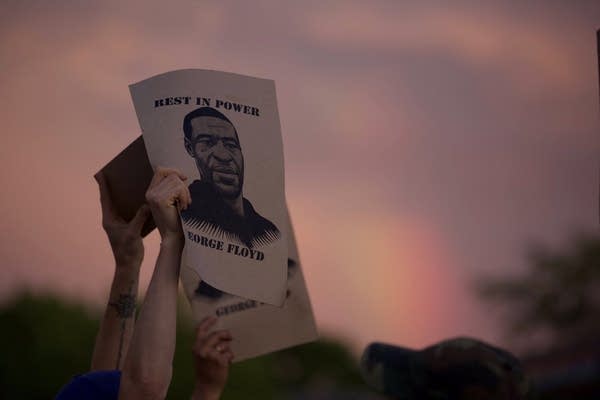Ex-Minneapolis cop charged with murder, manslaughter in Floyd death

A protester holds a sign with an image of George Floyd during a Wednesday protest at the Minneapolis Police Department 3rd Precinct.
Christine T. Nguyen | MPR News
Go Deeper.
Create an account or log in to save stories.
Like this?
Thanks for liking this story! We have added it to a list of your favorite stories.


